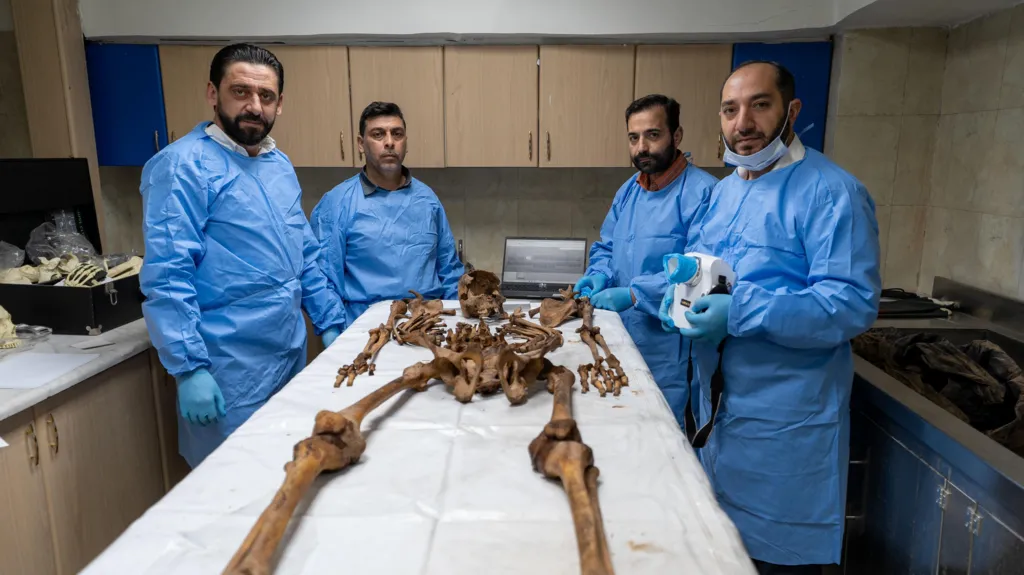"These," says Dr Anas al-Hourani, "are from a mixed mass grave."
The head of the newly-opened Syrian Identification Centre is standing next to two tables, covered in femurs. There are 32 of the human thigh bones on each laminated white tablecloth. They have been neatly aligned and numbered.
Sorting is the first task for this new link in the long chain from crime to justice in Syria. A "mixed mass grave" means that corpses were thrown one on top of another.
The chances are, these bones belong to some of the hundreds of thousands believed to have been killed by the regimes of the ousted president Bashar al-Assad and his father, Hafez, who together ruled Syria for more than five decades.
If so, says Dr al-Hourani, they were among the more recent victims: they died no more than a year ago.
Dr al-Hourani is a forensic odontologist: teeth can tell you so much more about a body, he says, at least when it comes to identifying who the person was.
But with a femur the lab workers in the basement of this squat grey office building in Damascus can begin the task: they can learn the height, the sex, the age, what sort of job they had; they might also be able to see whether the victim was tortured.
The gold standard in identification is of course DNA analysis. But, he says, there is just one DNA testing centre in Syria. Many were destroyed during the country's civil war. And "because of sanctions, a lot of the precursor chemicals that we need for the tests are currently not available".
They've also been informed that "parts of the instruments could be used for aviation and so for military purposes". In other words, they could be deemed "dual use", and so proscribed by many Western countries from export to Syria.
Add to that, the cost: $250 (£187) for a single test. And, says Dr al-Hourani, "in a mixed mass grave, you have to do about 20 tests to gather all the parts of one body". The lab relies entirely on funding from the International Committee of the Red Cross.
The new government of Islamist rebels-turned-rulers says that what they call "transitional justice" is one of their priorities.
Many Syrians who have lost relatives, and lost all trace of them, have told the BBC that they remain unimpressed and frustrated: they want to see more effort from the people who finally chased Bashar al-Assad from power last December after 13 years of war.
During those long years of conflict, hundreds of thousands were killed, and millions displaced. And, by one estimate, more than 130,000 people were forcibly disappeared.
At the current rate, it can take months to identify just one victim from a mixed mass grave. "This," says Dr al-Hourani, "will be the work of many, many years."

